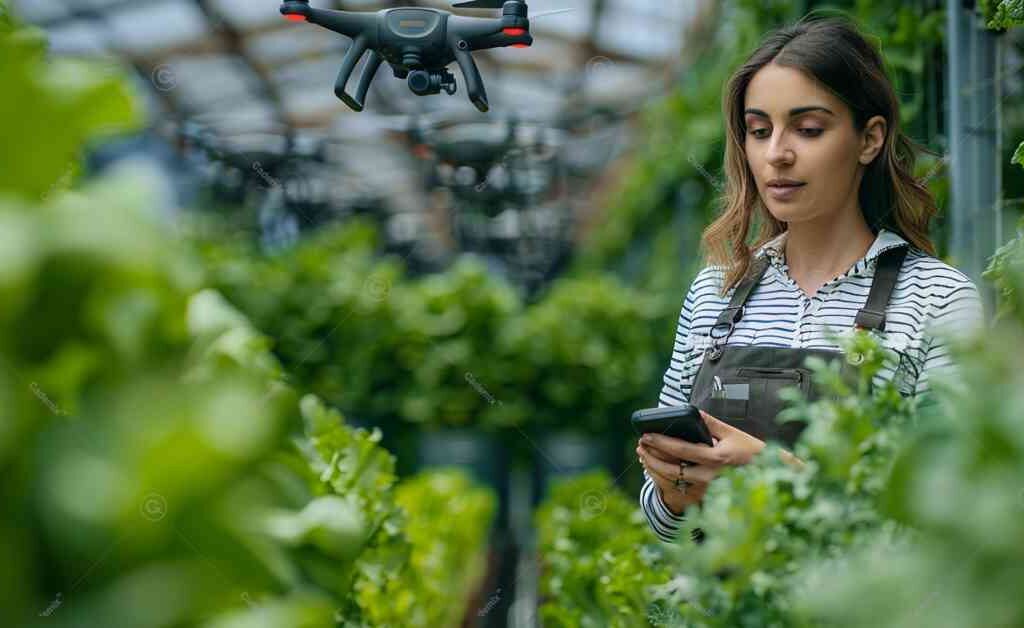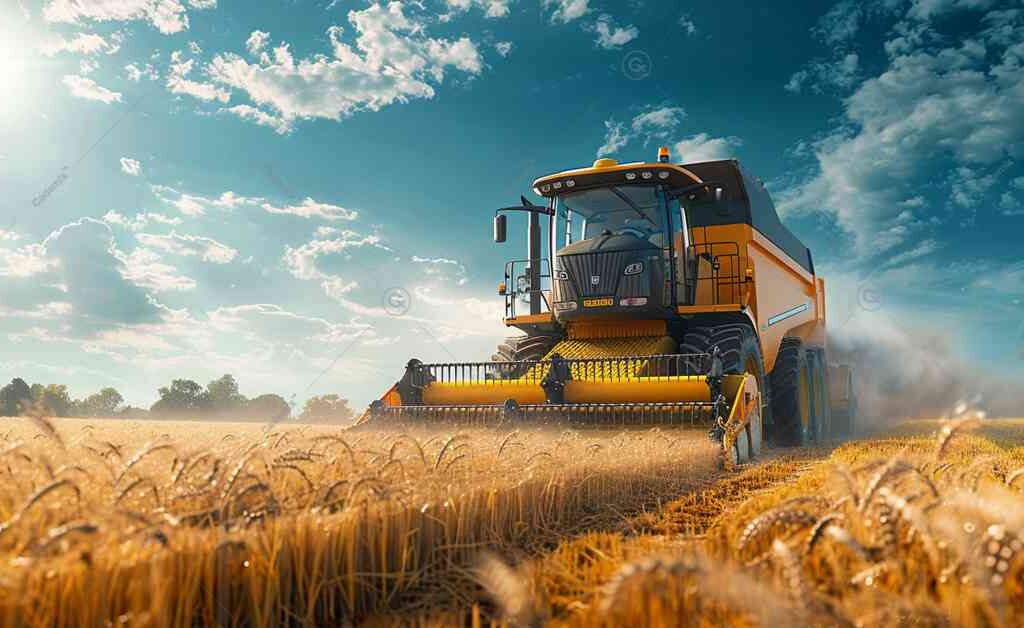Agribusiness encompasses the entire spectrum of economic activities related to the production, processing, and distribution of agricultural products. For students and academics unfamiliar with the business side of agriculture, understanding agribusiness is crucial for making informed decisions and contributing effectively to the industry. This article provides a comprehensive introduction to agribusiness, exploring its components, key concepts, and the intersection between academic research and practical applications in the market.
Keywords: agribusiness, agricultural market, academic introduction, agricultural economics, agribusiness components, industry practices, business market in agriculture
Understanding Agribusiness: Key Components
Agribusiness involves a wide range of activities that extend beyond traditional farming. It includes various sectors that work together to bring agricultural products from the farm to the consumer. Here are the main components of agribusiness:

Agricultural Production
- Crop Production: This involves the cultivation of plants for food, fiber, fuel, and other uses. It includes activities such as soil preparation, planting, irrigation, pest control, and harvesting.
- Livestock Farming: Raising animals for meat, milk, eggs, and other products. It includes breeding, feeding, and managing animal health.
- Aquaculture: The farming of fish, shellfish, and other aquatic organisms. It is a growing sector within agribusiness, particularly important for food security.
Agribusiness Processing
- Food Processing: Transforming raw agricultural products into finished goods ready for consumption. This includes activities like cleaning, sorting, milling, fermenting, and packaging.
- Value Addition: Enhancing the value of agricultural products through processing, packaging, and branding. Examples include turning raw milk into cheese or fruits into jams.
- By-Product Utilization: Using by-products from agricultural production and processing for other purposes, such as using crop residues for bioenergy or animal feed.
Agricultural Distribution
- Logistics and Transportation: Moving agricultural products from farms to processing facilities, markets, and consumers. Efficient logistics are crucial for reducing spoilage and ensuring timely delivery.
- Wholesale and Retail: Selling agricultural products to consumers through various channels, including wholesale markets, supermarkets, and online platforms.
- Export and Import: The global trade of agricultural products. Understanding international trade regulations, tariffs, and market demands is essential for successful agribusiness.
What is another word for agribusiness?
Key Concepts in Agribusiness
To bridge the gap between academia and the business market in agriculture, it is important to understand several key concepts that drive the industry.
Agricultural Economics
- Supply and Demand: The principles of supply and demand determine the prices of agricultural products. Understanding market trends and consumer preferences helps agribusinesses make informed production and marketing decisions.
- Market Structures: Different market structures, such as perfect competition, monopolistic competition, oligopoly, and monopoly, influence how agricultural products are priced and sold.
- Economic Policies: Government policies, including subsidies, tariffs, and trade agreements, significantly impact agribusiness operations. Staying informed about policy changes is crucial for strategic planning.
Sustainability and Environmental Impact
- Sustainable Practices: Implementing sustainable farming practices ensures long-term productivity and environmental health. This includes crop rotation, organic farming, and conservation tillage.
- Environmental Regulations: Compliance with environmental regulations is essential for reducing the ecological footprint of agribusiness operations. This includes managing water use, reducing emissions, and protecting biodiversity.
- Climate Change Adaptation: Agribusinesses must adapt to changing climate conditions by adopting resilient farming practices and technologies. This includes developing drought-resistant crops and efficient water management systems.

Technological Advancements
- Precision Agriculture: The use of technology to optimize agricultural practices. This includes GPS-guided equipment, drones for crop monitoring, and data analytics for decision-making.
- Biotechnology: The application of genetic engineering, breeding techniques, and molecular biology to improve crop yields, resistance to pests and diseases, and nutritional quality.
- Automation and Robotics: The use of automated machinery and robots in farming operations to increase efficiency and reduce labor costs. Examples include robotic milkers and automated harvesters.
Bridging Academia and the Agribusiness Market
For students and academics, understanding how theoretical knowledge applies to practical business situations is essential for bridging the gap between academia and the agribusiness market.
Integrating Research and Practice
- Field Studies and Internships: Gaining hands-on experience through field studies, internships, and placements with agribusiness companies. This practical exposure helps understand the real-world challenges and operations of agribusiness.
- Collaborative Research: Engaging in collaborative research projects with industry partners. This fosters the exchange of knowledge and the development of innovative solutions to industry problems.
- Case Studies: Analyzing case studies of successful agribusinesses to learn about best practices, strategies, and the application of theoretical concepts in real-world scenarios.
Entrepreneurial Skills
- Business Planning: Developing business plans that outline the goals, strategies, and financial projections for agribusiness ventures. This includes market analysis, budgeting, and risk assessment.
- Marketing Strategies: Understanding how to market agricultural products effectively. This includes branding, pricing strategies, and leveraging digital marketing tools.
- Financial Management: Managing the financial aspects of agribusiness, including accounting, investment, and securing funding. Knowledge of financial management ensures the sustainability and growth of the business.

Policy and Advocacy
- Policy Analysis: Understanding and analyzing agricultural policies and their impact on the industry. This includes studying government programs, subsidies, and international trade agreements.
- Advocacy and Lobbying: Engaging in advocacy and lobbying efforts to influence agricultural policies and promote the interests of the agribusiness sector.
- Regulatory Compliance: Ensuring compliance with regulations and standards related to food safety, environmental protection, and labor laws. This is crucial for maintaining credibility and avoiding legal issues.
Educational Pathways in Agribusiness
For students interested in pursuing a career in agribusiness, several educational pathways can provide the necessary knowledge and skills.
Undergraduate Programs
- Bachelor’s in Agribusiness: Programs typically cover agricultural economics, farm management, marketing, and policy analysis. They provide a solid foundation in both agriculture and business principles.
- Bachelor’s in Agricultural Science: These programs focus on the scientific aspects of agriculture, including crop and animal science, soil science, and sustainable farming practices. Business-related courses are often included to provide a comprehensive education.
- Business Administration with a Focus on Agriculture: These programs combine core business courses with specialized courses in agricultural management, marketing, and finance.
Graduate Programs
- Master’s in Agribusiness: Graduate programs offer advanced coursework in agribusiness management, policy analysis, and international trade. They often include research components and practical experiences.
- MBA with an Agricultural Focus: An MBA program with a concentration in agribusiness provides a broader business education while focusing on the unique challenges and opportunities in the agricultural sector.
- Ph.D. in Agricultural Economics or Agribusiness: Doctoral programs are designed for those interested in academic careers, research, and high-level policy analysis. They involve extensive research and the development of new knowledge in the field.
Professional Development
- Certifications and Short Courses: Various certifications and short courses are available for professionals seeking to enhance their skills in specific areas of agribusiness, such as sustainability, precision agriculture, or food safety.
- Workshops and Conferences: Attending industry workshops and conferences provides opportunities for networking, learning about the latest trends, and sharing knowledge with peers and experts.
- Online Learning: Online courses and webinars offer flexible learning options for those looking to gain knowledge and skills while balancing other commitments.

Conclusion and Call to Action
Agribusiness plays a vital role in the global economy, bridging the gap between agricultural production and the market. For students and academics, understanding the principles and practices of agribusiness is essential for making meaningful contributions to the industry. By integrating research with practical applications, developing entrepreneurial skills, and engaging in policy and advocacy, students can effectively transition from academia to the business market.
If you are interested in exploring the field of agribusiness and learning how to apply your academic knowledge to real-world situations, consider joining the Cademix Acceleration Program. Our consultancy services and educational programs are designed to support students and professionals in achieving their goals in the agribusiness sector.
Discover our Cademix Career Autopilot program and learn how we can help you navigate the complexities of agribusiness and build a successful career. For additional resources and insights on agribusiness education and career opportunities, visit AgriBusiness Global and The Agribusiness Institute.

